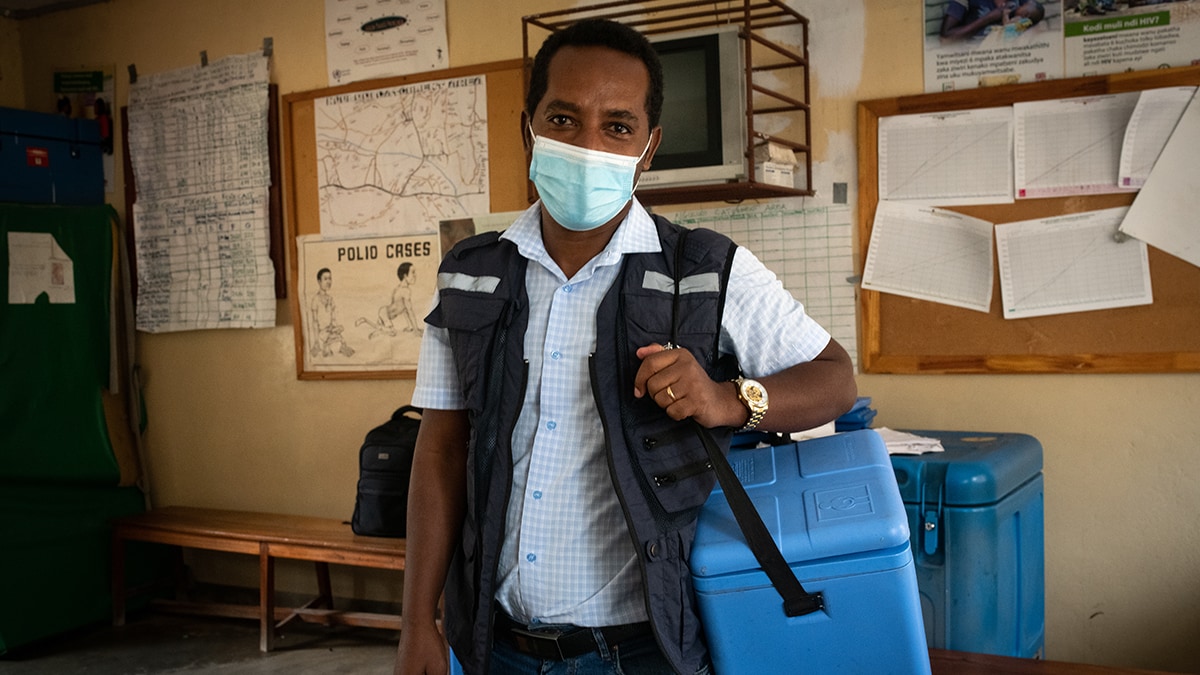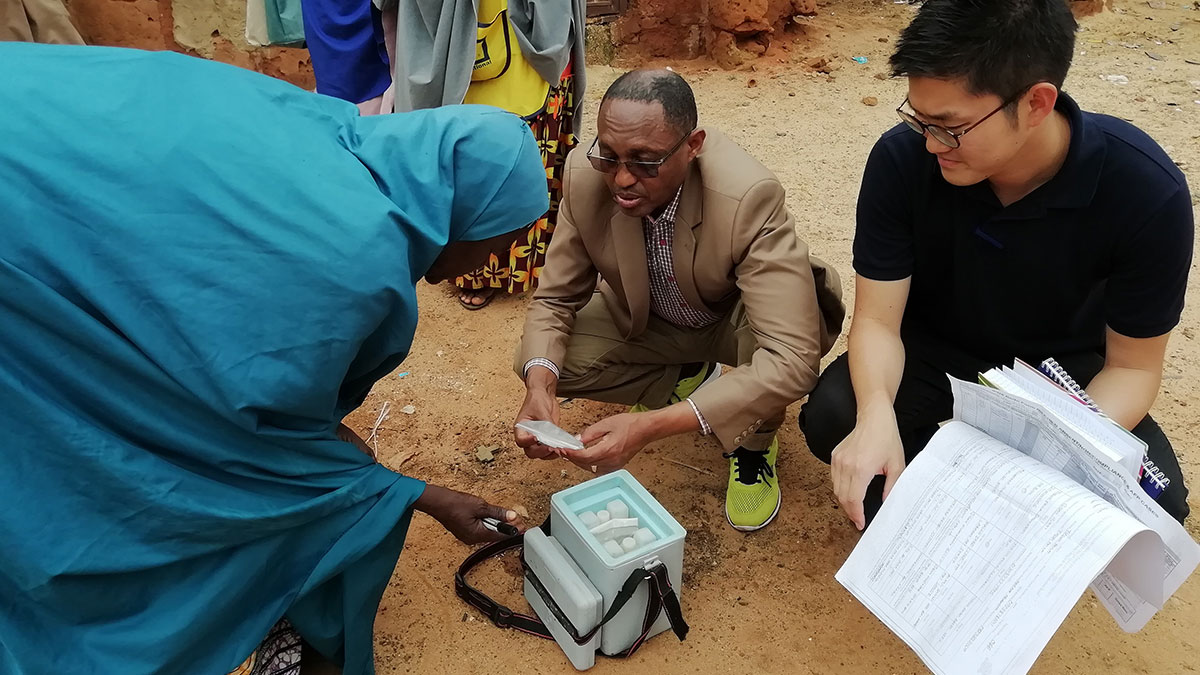Key points
- STOP consultants support immunization strengthening activities, disease outbreak response, and polio eradication efforts.
- During their assignments, STOP consultants live and work in the communities they serve.

Background
STOP has supported countries for over 20 years.
Since its founding STOP has:
- Recruited, trained and deployed 3,500 consultants
- Completed 5,400 assignments
- Supported 81 countries across all six World Health Organization (WHO) regions
What STOP consultants do

The STOP Program is a collaboration between CDC, WHO, and the United Nations Children's Fund (UNICEF).
STOP consultants:
- Serve as field epidemiologists, data managers, and social and behavioral change consultants
- Deploy to countries and geographies with the highest vaccine-preventable disease burden
- Live and work in the countries and geographies they serve during their assignments
Key areas of focus include:
- Vaccination activities to mitigate VPD outbreaks
- Active and passive surveillance
- Health education and communication
- Immunization policy guidance
- Data management and analysis
- Community engagement and social mobilization
Program priorities
STOP strengthens countries' immunization programs.
In the countries where they work, STOP consultants:
- Advance progress towards polio eradication where polio is present
- Maintain polio eradication where polio is no longer present
- Help countries strengthen their immunization and surveillance systems
- Support disease outbreak prevention, detection, and response
STOP consultants help countries address VPDs like polio, measles, rubella, and yellow fever. They also help countries respond to emerging threats like Ebola and COVID-19.
